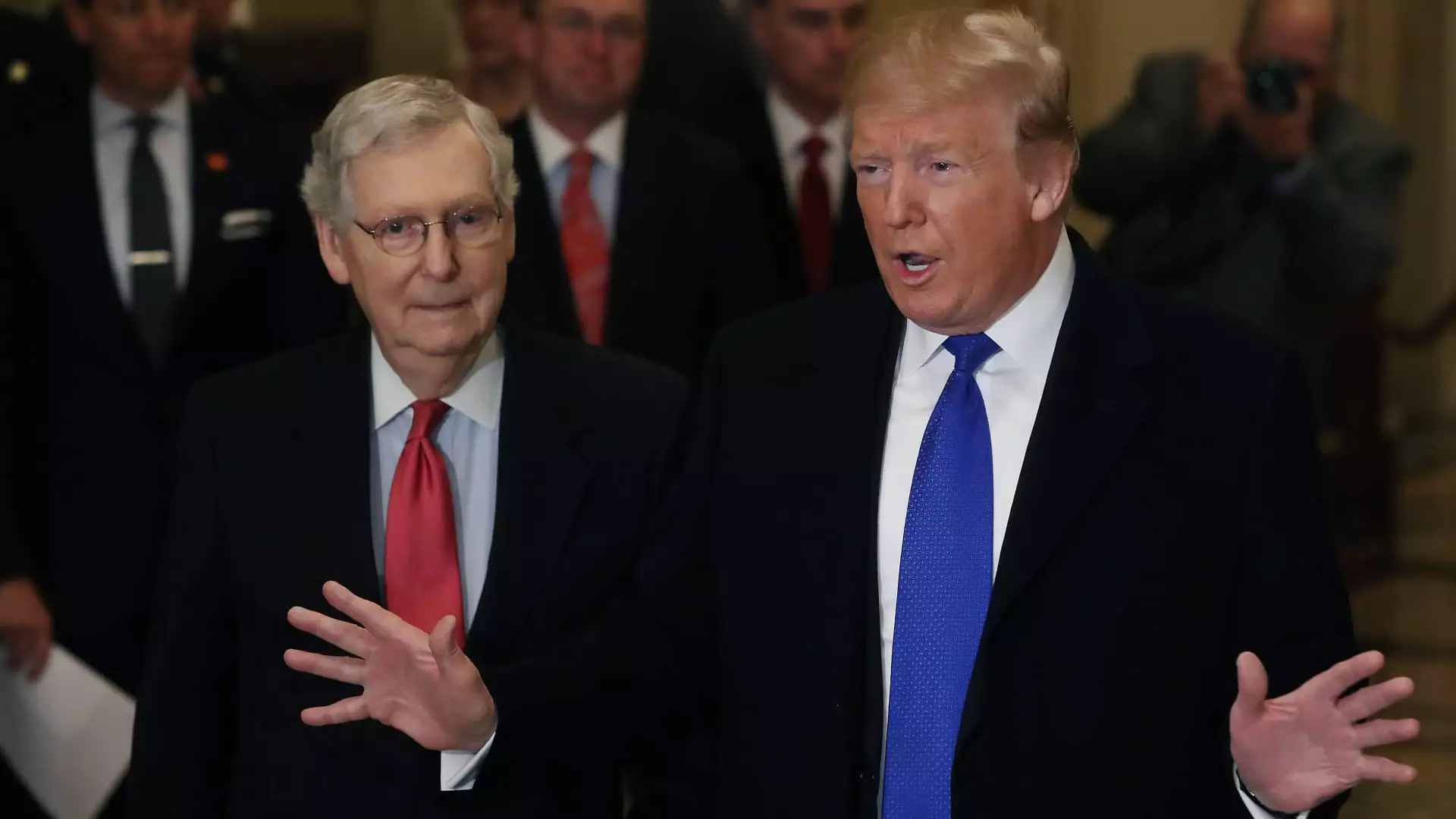Trade policy often sparks debate in political circles, particularly when it comes to tariffs and their implications for the economy. Recently, Senator Mitch McConnell, a prominent voice within the Republican Party, has publicly voiced his concerns over President Donald Trump’s aggressive tariff initiatives. McConnell’s criticism highlights a significant rift between traditional Republican economic philosophy and the current administration’s protectionist stance.
In an opinion piece published in the Courier-Journal, McConnell warns that imposing tariffs could have detrimental effects not only on the economy as a whole but also on American families and businesses that depend on international relationships for their livelihoods. By initiating trade wars with key partners like Canada and China, the senator argues that these tariffs could lead to increased prices for consumers and disrupt supply chains for businesses.
McConnell notes the complexities of global trade, emphasizing that American industries cannot afford to isolate themselves from the global market. He points out that 75,000 farms in Kentucky rely heavily on international sales for their crops, while the state’s automotive sector benefits from a well-integrated supply chain. A disruption in trade due to tariffs could cripple these industries, leading to job losses and reduced income for countless families.
A particularly pertinent aspect of McConnell’s argument is how these policies specifically threaten the state he represents. Kentucky’s economy is heavily intertwined with global trade, especially in agriculture and manufacturing. The bourbon industry serves as a quintessential example; in 2023, Kentucky distilleries were responsible for roughly 95% of the world’s bourbon production. The previous year, bourbon alone accounted for nearly all of the $500 million in exports from the state. The senator emphasizes that tariffs complicate this well-established industry, making exports more expensive and undermining Kentucky’s long-standing reputation as a bourbon bastion.
The potential fallout from rising costs due to tariffs is not merely an economic statistic; it resonates with real people whose economic viability is in jeopardy. McConnell’s candid acknowledgment of these threats illustrates a deeper understanding of the human ramifications behind economic policies.
As tensions rise and the administration continues to articulate its vision for America’s trade future, McConnell’s warnings serve as a critical reminder of the potential pitfalls associated with protectionism. He maintains that well-intentioned policies should not result in adverse outcomes for those they intend to protect. His perspective resembles a call for balanced trade policies that nurture American industry without inciting unnecessary conflict with international partners.
As the conversation around tariffs and trade continues, it will be vital to assess how these policies affect not just the economy as a whole but the lives of individual citizens, especially in states like Kentucky, where local industries thrive on global connections. McConnell’s criticisms may reflect a broader sentiment within the Republican Party, signaling a need for a reevaluation of trade strategies that prioritize both American interests and international cooperation.


Leave a Reply